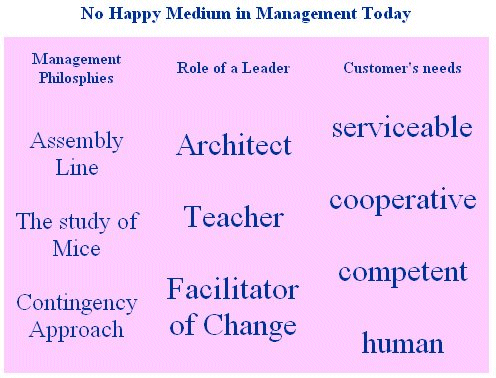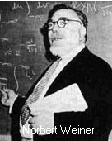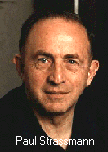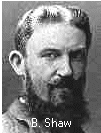|
Learning Stories
by
Mario deSantis
mariodesantis@hotmail.com



“I am a Canadian, free to speak without fear,
free to worship in my own way, free to stand for what I think right, free to
oppose what I believe wrong, and free to choose those who shall govern my
country.” - -The Rt. Hon. John Diefenbaker, Canadian Bill of Rights,
1960
“The whole judicial system is at issue, it's
worth more than one person.”--Serge Kujawa, Saskatchewan Crown
Prosecutor, 1991
“The system is not more worth than one person's
rights.”--Mario deSantis, 2002
Ensign Stories © Mario deSantis and Ensign
| |
| |
A t
this time of rapid technological and economic changes, I am
developing a strong aversion to conventional wisdom. The
global economy and the World Wide Web have broken down the
conventional law of economics and have reinforced our
economic and cultural interdependences (re: "Intellectual
Capital", by Thomas Stewart, Doubleday / Currency, 1997).
Our knowledge and economic products/services don't
depreciate anymore as they become more abundant, and
intellectual capital is becoming a more relevant resource
than "brick and mortar". t
this time of rapid technological and economic changes, I am
developing a strong aversion to conventional wisdom. The
global economy and the World Wide Web have broken down the
conventional law of economics and have reinforced our
economic and cultural interdependences (re: "Intellectual
Capital", by Thomas Stewart, Doubleday / Currency, 1997).
Our knowledge and economic products/services don't
depreciate anymore as they become more abundant, and
intellectual capital is becoming a more relevant resource
than "brick and mortar". |
|
 Last year, I approached Ms. Lynne Pearson, Dean of Commerce
at the University of Saskatchewan, and in submitting my
paper "Coping with changes: an overview of the Learning
Organization, Knowledge Economy and current practices in
Information Technology applications" I suggested that
changes could be provided to the curriculums of management
and organizational courses. In particular, I made references
to the works of Peter Senge (re: "The Fifth Discipline", by
Peter M. Senge, Currency Doubleday, 1990, Paperback Edition:
October 1994) and Michael Porter (re: "Competitive Strategy:
Techniques for Analyzing Industries and Competitors", The
Free Press, 60th reprint 1998). The response of Ms. Pearson
was to return my paper and in her accompanying letter she
mentioned that the university curriculums are revised in
accordance to established criteria satisfying the related
needs. Last year, I approached Ms. Lynne Pearson, Dean of Commerce
at the University of Saskatchewan, and in submitting my
paper "Coping with changes: an overview of the Learning
Organization, Knowledge Economy and current practices in
Information Technology applications" I suggested that
changes could be provided to the curriculums of management
and organizational courses. In particular, I made references
to the works of Peter Senge (re: "The Fifth Discipline", by
Peter M. Senge, Currency Doubleday, 1990, Paperback Edition:
October 1994) and Michael Porter (re: "Competitive Strategy:
Techniques for Analyzing Industries and Competitors", The
Free Press, 60th reprint 1998). The response of Ms. Pearson
was to return my paper and in her accompanying letter she
mentioned that the university curriculums are revised in
accordance to established criteria satisfying the related
needs. |
| |
| Last Thursday, July 9, I had the pleasure to converse
with Laurie Markwart, a health administration university
student at the University of Saskatchewan, who is presently
spending her Summer working at North East Health District,
Nipawin. We talked about the changes taking place in
management and about leadership philosophies. Laurie asked
if "among such philosophies there was a happy medium."
It is an absurdity trying to reconcile management
philosophies which preach either the assembly line, or the
study of mice, or the contingency approach. I told Laurie
that there were not happy mediums, and that today's role of
a leader is to be an architect, a teacher, a facilitator of
changes. In our knowledge economy, where we are all
customers of each other, within or out of our organization,
we have no "happy medium" management approach beyond the
commitment to satisfy the real customer's needs to feel
serviceable, cooperative, competent and human.
 |
I realize that there is a lot of work to do in changing our
conventional mind set. Therefore, when I visited the @BRINT
WEB SITE a few days ago I was happy to find out many
quotations reinforcing our basic need to sustain
"Unconventional Knowledge". As a consequence, in an effort
to motivate economic changes, I provide on these pages some
of the above mentioned quotations. |
| |
 Rising
Above Mediocrity... Rising
Above Mediocrity...
"Great spirits have always found violent opposition from
mediocrity. The latter cannot understand it when a man does
not thoughtlessly submit to hereditary prejudices but
honestly and courageously uses his intelligence."
-- Albert Einstein |
| |

Rising
to the Stormy Present...
" The dogmas of the quiet
past are inadequate to the stormy present. The occasion is
piled high with difficulty, and we must rise to the
occasion. As our case is new, so we must think anew and act
anew. "
--Abraham Lincoln
|
| |

Living
in a Man-Made World...
" Scientists must know what man's nature is and what his
built-in purposes are if we are to live successfully in an
increasingly man-made world. "
-- Norbert Weiner, in The Human Use of Human Beings,
Boston, MA: Houghton-Mifflin, 1954
|
| |

Believe
with Your Understanding...
" Don't believe what your eyes are telling you, all they
show is limitation. Believe with your understanding, find
out what you already know, and you'll see the way to fly. "
-- Richard Bach, author of Jonathan Livingston Seagull
|
| |
 On
Education.... On
Education....
" Education is not a preparation for life; education is
life itself. "
-- John Dewey
|
| |
| On Past Wisdom
"Past wisdom must not be a constraint, but something to
be challenged."
-- Ghoshal, S. & Bartlett, C.A., in "Rebuilding
Behavioral Context: A Blueprint for Corporate Renewal,"
Sloan Management Review, Winter 1996, pp. 23-36. (Editor's
note: Sumantra Ghoshal is with the London Business School
where he heads up Stretegic Leadership Research Programme,
he has published several articles with Christopher Bartlett
and others.)
|
 Successful
Technologies Should Resonate With Human Behavior... Successful
Technologies Should Resonate With Human Behavior...
"The technologies that will be most successful will
resonate with human behaviour instead of working against it.
In fact, to solve the problems of delivering and
assimilating new technology into the workplace, we must look
to the way humans act and react.... In the last 20 years, US
industry has invested more than $1 trillion in technology,
but has realised little improvement in the efficiency of its
knowledge workers and virtually none in their effectiveness.
If we could solve the problems of the assimilation of new
technology, the potential would be enormous. "
-- John Seely-Brown, in "The Human Factor", Information
Strategy, Dec 96-Jan 97. (Editors note: John Seely-Brown is
head of Xerox Parc in Palo Alto California) |
| |
 It is Not the Computers, but What People Do with them... It is Not the Computers, but What People Do with them...
"The lack of correlation of information technology
spending with financial results has led me to conclude that
it is not computers that make the difference, but what
people do with them. Elevating computerization to the level
of a magic bullet of this civilization is a mistake that
will find correction in due course. It leads to the
diminishing of what matters the most in any enterprise:
educated, committed, and imaginative individuals working for
organizations that place greater emphasis on people than on
technologies."
-- Paul Strassmann, Excerpt from his new book The
Squandered Computer |
| |
 On
Learners and the Learned... On
Learners and the Learned...
"In Time Of Profound Change, The Learners Inherit The
Earth, While The Learned Find Themselves Beautifully
Equipped To Deal With A World That No Longer Exists."
-- Al Rogers (cited on a listserv... some attribute it to
Eric Hofer)
|
| |
 Believe
Nothing Unless... Believe
Nothing Unless...
"Believe nothing, no matter where you read it, or who
said it, no matter if I have said it, unless it agrees with
your own reason and your own common sense."
-- Buddha (cited on a web site in Iceland) |
| |
| Learning, Doing and Teaching!
"Learning is finding out what you already know. Doing is
demonstrating that you know it. Teaching is reminding others
that they know just as well as you. You are all learners,
doers, teachers..."
-- Richard Bach (1977), Illusions:The Adventures of a
Reluctant Messiah |
| |
| Knowledge: Need for a Mental Clearinghouse?
"An immense and ever-increasing wealth of knowledge is
scattered about the world today; knowledge that would
probably suffice to solve all the mighty difficulties of our
age, but it is dispersed and unorganized. We need a sort of
mental clearing house for the mind: a depot where knowledge
and ideas are received, sorted, summarized, digested,
clarified and compared."
-- H.G. Wells in 'The Brain: Organization of the Modern
World',1940. (Quoted in a home page signature file) |
| |
' Knowing'
or 'Not Knowing'? Knowing'
or 'Not Knowing'?
"The Tao belongs neither to knowing nor not knowing.
Knowing is false understanding, not knowing, blind
ignorance. To really understand the Tao is like the empty
sky. Why drag in right and wrong?"
-- Lao Tse (Quoted on a Listserv signature file)
|
| |
| Information Systems Add to Organizations' Inertia?
"Many modern information systems dysfunctionally add to
organizations' inertia. Access to more information and more
advanced decision aids does not necessarily make decision
makers better informed or more able to decide."
-- Hedberg, B. & Jonsson, S. (1978). "Designing
Semi-Confusing Information Systems for Organizations in
Changing Environments," Accounting, Organizations, and
Society, 3(1), pp. 47-64. |
| |
 Progress
Depends on Unreasonable Men? Progress
Depends on Unreasonable Men?
"The reasonable man accommodates himself to the ways of
the world. The unreasonable man attempts to get the world to
accommodate itself to his ways. Progress depends on
unreasonable men."
-- George Bernard Shaw (Quoted in a Listserv Message) |
| |
 On
Individuals, Stimuli, and Sensations On
Individuals, Stimuli, and Sensations
"If two people stand at the same place and gaze in the
same direction, we must, under pain of solipsism, conclude
that they receive closely similar stimuli. But people do not
see stimuli; our knowledge of them is highly theoretical and
abstract. Instead they have sensations, and we are under no
compulsion to suppose that the sensations of our two viewers
are the same... Among the few things that we know about it
with assurance are: that very different stimuli can produce
the same sensations; that the same stimulus can produce very
different sensations; and, finally, that the route from
stimuli to sensation is in part conditioned by education."
-- Kuhn, T.S. (1970). The Structure of Scientific
Revolutions, 2nd ed., University of Chicago Press, Chicago,
IL, pp. 192-93. http://businesstech.com/btfreefoundation.html |
| |
| Information is "Improbability"
"The surprise effect of messages, news information will
be greater the less probable they are, the less we expect
them, the more they come about by chance... The information
is greater the less probable it is. In this sense
information is 'improbability.'"
-- Fuchs, W.R. (1971). Cybernetics for the Modern Mind,
New York: The MacMillan Company. |
| |
| On "Yet Another Committee"
"A committee is a group of the unprepared, appointed by
the unwilling, to do the unnecessary." (F. Allen)
-- Peter, L.J. The Peter Prescription: How to Make Things
Go Right, Bantam, NY, 1972. |
| |
 On
Outsourcing and Anorexia Nervosa On
Outsourcing and Anorexia Nervosa
"Excellent companies can achieve superior performance
without following any standard information technology
spending pattern... Only one variable clearly stands out:
They don't show any trends toward massive outsourcing...
Excellence arises from the way management harmonizes its
resources, which are different for each organization. This
is why I believe the current fashion of telling companies
what their best-practice indicators should be... has
questionable merit."
-- Strassmann, Paul A. (1995, Dec. 18). The Myth of Best
Practices. Computerworld, p. 88.
"One could say that outsourcing has many of the
attributes of a widely prevailing disorder known as
"Anorexia nervosa." It is a psychological disturbance
involving the refusal to eat to the point of starvation.
People with anorexia have a distorted self-image which makes
them feel "fat" even when emaciated. Preoccupation with food
and low self-esteem, along with emphatic denial of the
problem, characterize most anorexics. Similarly, executives
in companies with poor financial performance seem to
concentrate on downsizing as the preferred method for
restoring competitiveness."
-- Strassmann, Paul A. (1995, Aug. 21). Outsourcing: A
Game for Losers. Computerworld, p. 75. |
| |
| On Outsourcing & Intellectual Capital
"Sourcing amounts to renting the skills and competences
of a potential competitor. Renting may appear cheap relative
to ownership (and a large mortgage), but the lease may not
be renewed or the rent may be dramatically increased.
Furthermore, you are accumulating little if any
technological knowledge (equity) and are unlikely to benefit
if the skills and competences appreciate in value due to
future business opportunities that cannot be clearly
foreseen."
-- Bettis, R.A., S.P. Bradley and G. Hamel (1992),
"Outsourcing and Industrial Decline,"Academy of Management
Executive, 6, 1, 7-22. |
| |
 Of
Humans and their 'Central Concerns'? Of
Humans and their 'Central Concerns'?
"A good business novel or business biography is not about
business. It is about love, hate, craftsmanship, jealousy,
comradeship, ambition, pleasure. These have been, and will
continue to be, man's central concerns."
-- Simon, H.A. (1977). The New Science of Management
Decision, Prentice-Hall, Englewood Cliffs, NJ, p. 134. |
| |
 Knowledge
and the Post-Capitalist Society Knowledge
and the Post-Capitalist Society
"Knowledge is power, which is why people who had it in
the past often tried to make a secret of it. In
post-capitalism, power comes from transmitting information
to make it productive, not from hiding it."
--Drucker, P.F. (1995). "The Post-Capitalist Executive,"
in Managing in a Time of Great Change, Penguin, New York,
NY. http://sirius.cba.ohiou.edu/~oumba/paper2.html http://www.brint.com/forbes.htm |
| |
| On Intelligence: 'Artificial' and 'Real'
"[I]t is rather ironic that the application of artificial
intelligence to manufacturing is becoming a popular topic.
If intelligence is so helpful to manufacturing in artificial
form, then why have the benefits of the real intelligence
overlooked so far." (Safizadeh, M.H.)
-- Pfeffer, J. (1994).Competitive Advantage through
People: Unleashing the Power of the Work Force, Harvard
Business School Press, MA. |
| |
 Imagination:
More Important than Knowledge? Imagination:
More Important than Knowledge?
"Imagination is more important than Knowledge."
-- Albert Einstein cited in Osborn,A.F. (1985). Applied
Imagination: Principles and Procedures of Creative
Problem-Solving, Charles Scribner's Sons, Bombay, India
|
| |
| Successful Knowledge Transfer: Doesn't Involve
Computers?
"Successful knowledge transfer involves neither computers
nor documents but rather interactions between people."
-- Davenport, T.H. "Think Tank: The Future of Knowledge
Management," CIO, December 15, 1995. (Editor's Note: Thomas
Davenport is the guru on Knowledge Management holding
conferences in major centres and with his own institution
promoting the concept. He is a University Professor in
Texas.) http://www.accustaff.com/3-98_Insights.html http://www.oramag.com/archives/38/38ind2.htm |
| |
| Solutions: A Temporary Event?
"Solutions...are a temporary event, specific to a
context, developed through the relationship of persons and
circumstances."
-- Wheatley, M.J. quoted in Stuart, A. "Elusive Assets,"
CIO, November 15, 1995, pp. 28-34. |
| |
| Any Scientific Field Atrophies When Cut Off From
Curiosity, Diversity & Reflection
"Every scientific field has a sense of history. It
atrophies if it cuts itself off from curiosity, diversity
and reflection. Many of our colleagues in other fields are
frankly bored with what they do and a little worried that
their work is partly making the emperor some new clothes.
Most of us have chosen to work in MIS because it is
enjoyable and relevant to some wider concerns."
--- Keen, Peter G.W. (1980). "MIS Research: Reference
Disciplines and a Cumulative Tradition."Proceedings of the
First International Conference on Information Systems,
Philadelphia, PA, December 8-10, 9-18, p. 18. (Editor's
note: That "MIS" had me going but it is Managing Information
Systems) |
| |
| Data Doesn't Imply Knowledge! Nor Does Information
Technology Imply Information! "The computer is merely
a tool in the process...To put it in editorial terms,
knowing how a typewriter works does not make you a writer.
Now that knowledge is taking the place of capital as the
driving force in organizations worldwide, it is all too easy
to confuse data with knowledge and information technology
with information."
--Drucker, P.F. (1995). "The Post-Capitalist Executive,"
in Managing in a Time of Great Change, Penguin, New York,
NY. |
| |
| Division of Human Knowledge: Managerially Stupid?
"From a management point of view, the current division of
human knowledge into disciplines is managerially stupid and
an often evil design of science, which blocks off inquiry
into critical issues because the issues don't fit into the
disciplines."
-- Churchman, C.W. "Management Science: Science of
Managing and Managing of Science,"Interfaces, 24(4),
July-August 1994, pp. 99-110. http://businesstech.com/btfreefoundation.html |
| |
| Of Financial Capital & Intellectual Capital
"Unlike capital, knowledge is most valuable when it is
controlled and used by those on the front lines of the
organization."
-- Bartlett, C.A. & Ghoshal, S. "Changing the Role of the
Top Management: Beyond Systems to People," Harvard Business
Review, May-June 1995, pp. 132-142 |
| |
| Highest Bandwidth Network: Between the Water Fountain
and the Coffee Machine?
"The best information environments will take advantage of
the ability of IT to overcome geography but will also
acknowledge that the highest bandwidth network of all is
found between the water fountain and the coffee machine."
-- Davenport, T.H. "Think Tank: The Virtual and the
Physical," CIO, November 15, 1995. |
| |
| What Computers Cannot Do?
"Computers can figure out all kinds of problems, except
the things in this world that just don't add up."
-- J. Magary |
| |
| |
|
|
 t
this time of rapid technological and economic changes, I am
developing a strong aversion to conventional wisdom. The
global economy and the World Wide Web have broken down the
conventional law of economics and have reinforced our
economic and cultural interdependences (re: "Intellectual
Capital", by Thomas Stewart, Doubleday / Currency, 1997).
Our knowledge and economic products/services don't
depreciate anymore as they become more abundant, and
intellectual capital is becoming a more relevant resource
than "brick and mortar".
t
this time of rapid technological and economic changes, I am
developing a strong aversion to conventional wisdom. The
global economy and the World Wide Web have broken down the
conventional law of economics and have reinforced our
economic and cultural interdependences (re: "Intellectual
Capital", by Thomas Stewart, Doubleday / Currency, 1997).
Our knowledge and economic products/services don't
depreciate anymore as they become more abundant, and
intellectual capital is becoming a more relevant resource
than "brick and mortar". Last year, I approached Ms. Lynne Pearson, Dean of Commerce
at the University of Saskatchewan, and in submitting my
paper "Coping with changes: an overview of the Learning
Organization, Knowledge Economy and current practices in
Information Technology applications" I suggested that
changes could be provided to the curriculums of management
and organizational courses. In particular, I made references
to the works of Peter Senge (re: "The Fifth Discipline", by
Peter M. Senge, Currency Doubleday, 1990, Paperback Edition:
October 1994) and Michael Porter (re: "Competitive Strategy:
Techniques for Analyzing Industries and Competitors", The
Free Press, 60th reprint 1998). The response of Ms. Pearson
was to return my paper and in her accompanying letter she
mentioned that the university curriculums are revised in
accordance to established criteria satisfying the related
needs.
Last year, I approached Ms. Lynne Pearson, Dean of Commerce
at the University of Saskatchewan, and in submitting my
paper "Coping with changes: an overview of the Learning
Organization, Knowledge Economy and current practices in
Information Technology applications" I suggested that
changes could be provided to the curriculums of management
and organizational courses. In particular, I made references
to the works of Peter Senge (re: "The Fifth Discipline", by
Peter M. Senge, Currency Doubleday, 1990, Paperback Edition:
October 1994) and Michael Porter (re: "Competitive Strategy:
Techniques for Analyzing Industries and Competitors", The
Free Press, 60th reprint 1998). The response of Ms. Pearson
was to return my paper and in her accompanying letter she
mentioned that the university curriculums are revised in
accordance to established criteria satisfying the related
needs.
 Rising
Above Mediocrity...
Rising
Above Mediocrity...



 On
Education....
On
Education....
 Successful
Technologies Should Resonate With Human Behavior...
Successful
Technologies Should Resonate With Human Behavior...
 It is Not the Computers, but What People Do with them...
It is Not the Computers, but What People Do with them...
 On
Learners and the Learned...
On
Learners and the Learned...
 Believe
Nothing Unless...
Believe
Nothing Unless...
 Knowing'
or 'Not Knowing'?
Knowing'
or 'Not Knowing'?
 Progress
Depends on Unreasonable Men?
Progress
Depends on Unreasonable Men?
 On
Individuals, Stimuli, and Sensations
On
Individuals, Stimuli, and Sensations
 Of
Humans and their 'Central Concerns'?
Of
Humans and their 'Central Concerns'?
 Knowledge
and the Post-Capitalist Society
Knowledge
and the Post-Capitalist Society
 Imagination:
More Important than Knowledge?
Imagination:
More Important than Knowledge?